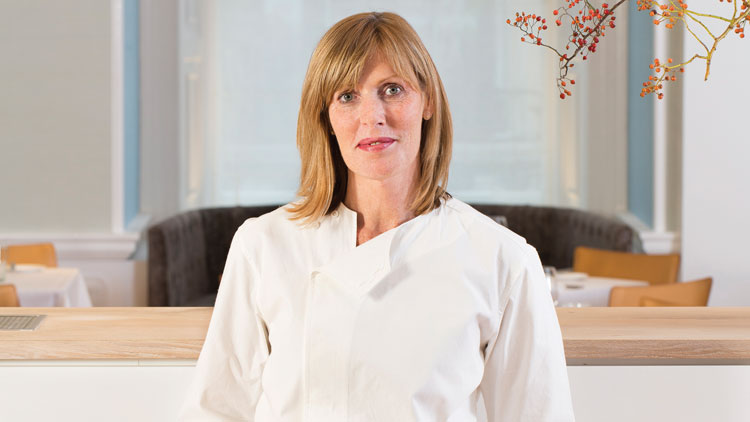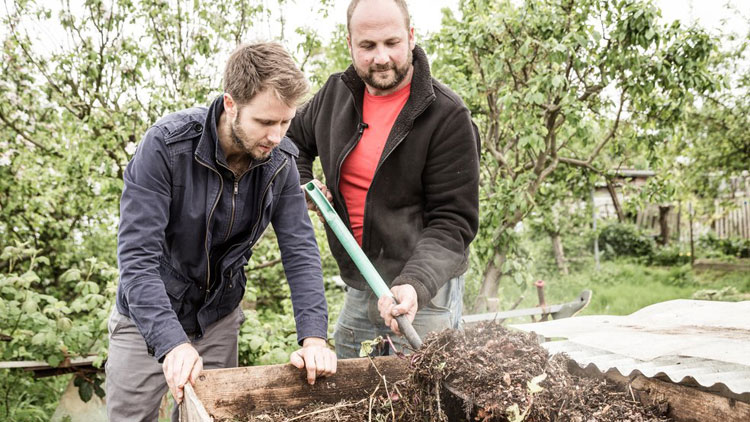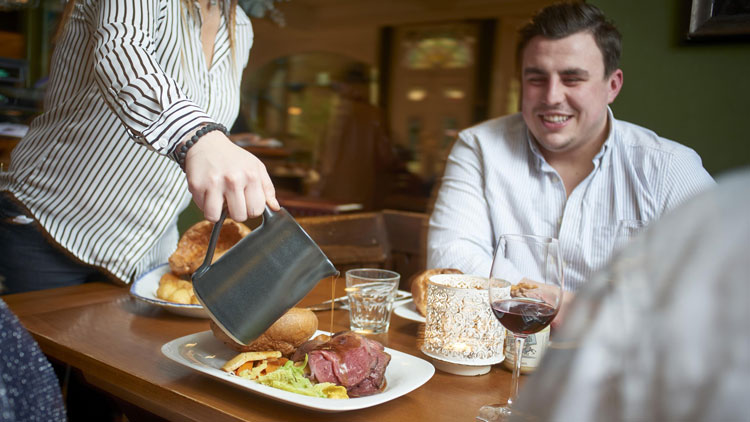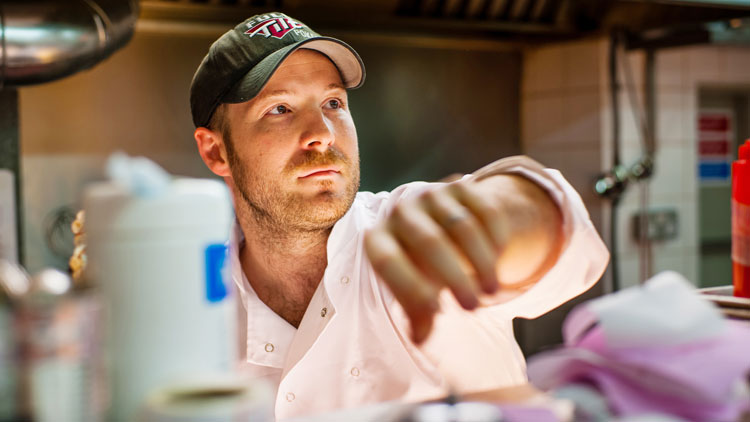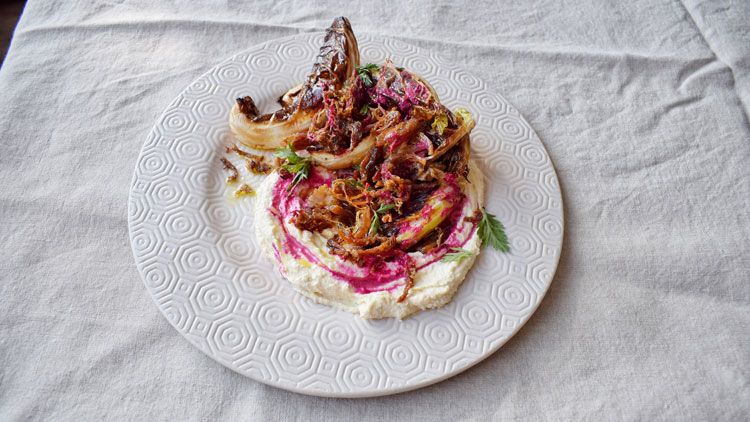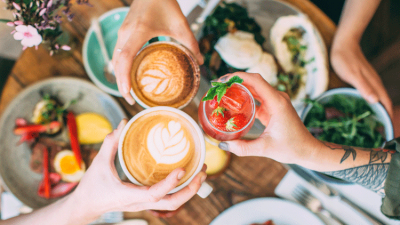Green giants: how four restaurants are boosting their eco-credentials

Cast your mind back to 2010 and ‘sustainability’ was the hot new buzzword in the restaurant world. That was the year the Sustainable Restaurant Association was first formed, Hugh Fearnley-Whittingstall harangued ministers about fish discards and local sourcing peaked with menus that read more like biographies of farmers than a list of dishes.
In hindsight, we probably didn’t need to know the name of the cow we were eating, but it did mark a key moment in a trend that has gathered pace at a remarkable speed ever since. This is particularly true of the past year, which has seen restaurants thrust centre stage in the debate on sustainability.
Plastic straws have become a lightning rod for public outrage over pollution in the oceans, while local sourcing trends have been galvanised by meat hygiene and labelling scandals. At the same time, food waste and animal welfare still consistently top consumer surveys on sustainability.
It all means that name dropping a few suppliers (or their cows) on a menu is no longer enough. Diners expect restaurants to tackle sustainability in a substantive way, but how does that manifest itself in practice? We spoke to four restaurants on topics ranging from going plastic-free and creating menus with trimmings, to supply chain sustainability and growing vegetables in leftovers.
Cooking with scraps: Spring
Located just a little too far from the heart of London’s theatreland, Spring in Somerset House used to struggle with its pre-theatre menu. “It would be quiet, quiet, quiet before 7.30pm,” admits chef-patron Skye Gyngell. That was until 18 months ago when she launched the £20-a-head three-course scratch menu as a way of cutting food waste. Now the restaurant does anywhere between 40 and 60 covers between 5.30pm and 6.30pm, when the menu is available, serving food that would previously have gone in the bin.
The daily-changing menu is decided by what’s left over from preceding services – a salad made from the outer leaves of cabbages perhaps or poached cod trimmings followed by a cake made from re-milled bread. “We never order anything for it, but it’s got to look beautiful, taste good and be balanced,” says Gyngell. “People feel good about eating food that otherwise would have been thrown away, but it has to be delicious.”
Average spend per head is around the £35 mark, but more importantly food waste has been cut to just 8%. Supplier Fern Verrow, a Herefordshire based biodynamic farm, has also cut waste from 35% to 12% by sending produce that would previously have been binned because of small imperfections.
Following on from the menu’s success, Gyngell has committed to banning all single-use plastic from Spring by 2019. Plastic straws have already been ditched for compostable alternatives, cling film is being replaced by a beeswax wrapping and metal pans are used instead of Tupperware.
“I looked at how we did things and was simply overwhelmed by the amount of plastic we use – it’s everywhere,” she says. “We worked out that we used 3,600km of cling film last year, which is crazy. We had to do something.”
The food waste farmers: The Dairy
Robin Gill has long practised what he calls “guerilla urban farming” at his restaurants, growing salad above his flagship restaurant The Dairy in Clapham, south-west London, while Dean Parker, business partner and head chef at the group’s recently opened Italian restaurant Sorella, also in Clapham, has planted up a patch of unwanted land nearby. But it was when the pair teamed up with a company called Indie Ecology last year that the idea really started to bear fruit.
“They take our food waste and, using a Japanese method known as ‘bokashi’, turn it into a rich, almost black compost full of nutrients,” explains Gill. “It’s entirely organic using a type of fermented molasses and naturally occurring micro-organisms to turn kitchen scraps into safe nutrient-rich compost. What they have helped us to achieve is remarkable.”
Set up by Igor Vaintraub in 2011, Indie Ecology supplies around 100 restaurants, including The Ledbury and Roganic, with 120-litre sealed food waste bins, which are used for all scraps, including meat, fish and dairy. These are collected when full with the contents turned into compost in around 10-13 weeks, which is then used to enrich 10 acres of farmland near Lindfield in West Sussex.
Around 10 restaurants, including The Dairy, each have their own 100-500m plot at the farm, tended by farmer Tom Morphew. “Each restaurant consults with the guys on what they would like to grow, then we buy the seeds and the rest is left to Tom, Igor and nature,” says Gill. “We get deliveries twice a week and our menu works around what is produced.”
Restaurants pay a premium for the produce – around 30% more than they would be charged by a standard wholesaler – and Indie Ecology charges £7 for each bin collected. But chefs are happy to pay.
“They get exactly the produce they want and it is totally organic,” says Vaintraub. “It’s also a good story. The Ledbury gives away bags of compost to customers, who put photos on Instagram of what they’re growing in their Michelin-starred compost.”
Meat made peachy: Peach Pubs
The meat industry was back in the headlines for all the wrong reasons again earlier this year, after a major recall from restaurant supplier Russell Hume over food hygiene concerns. The company was forced into administration soon after amid accusations of meat being labelled with wrong use-by dates and foreign beef being sold as British.
For Hamish Stoddart, managing director at Peach Pubs, the news stories were further confirmation that supply chain transparency and sustainability go hand in hand when it comes to meat. “We’ve been banging the drum for sustainable meat ever since we started back in 2002,” he says. “We believe you need to find a way to do ethical, sustainable produce at pub prices, so we are often more generous to our guests because we believe in it personally.”
Key to this belief has been a close relationship with respected catering butcher Aubrey Allen, which supplies the 20-strong chain with free-range chicken, Cornish lamb and free-range Blythburgh pork, plus grass-fed, 28-day dry-aged British beef from native breeds, which are slaughtered at around 24 months.
All of this comes at a cost, however. Dry-aged beef is at least 10% more expensive than wet-aged equivalents because of weight loss during ageing, while it costs 25% more and upwards to use British beef compared to cheaper imported meat.
To make it work on a pub menu requires skilled staff, who can make the most of cheaper cuts, explains Stoddart. So you can order a 28-day dry-aged rib-eye and chips for £27.75 at a Peach pub, but there’s also rump cap steak for £21.75, plus specials using beef cheeks and shin. “We have real chefs cooking dishes from scratch in the kitchen – 18% to 22% of our business is in specials,” says Stoddart. “We work very closely with Aubrey Allen to use the whole carcase.”
Aubrey Allen managing director Russell Allen adds that chefs need to stop looking at ingredients as a cost and start looking at them as an asset. “True sustainability is about working your product from start to finish and not just cherry picking the prime cuts,” he says. “If buyers continually push prices lower, it puts pressure on unscrupulous suppliers to take shortcuts. It’s unsustainable in the long run.”
The anti-plastic pioneer: Temper
Temper chef-patron Neil Rankin is the latest industry player to make moves away from plastic, hitting out on social media at the industry’s overuse of the material.
In an Instagram post of a vacuum-packed cauliflower steak posted last month, the chef wrote: “This is more a post for chefs and restaurant owners, but how many restaurants out there are still using plastic bags to do shit like [vac packing]. Maybe it’s time to sit down and have a rethink about how many times you really need to do this.”
Rankin says he plans to phase out the use of plastic completely at his London restaurants Temper and Temper2. Both stopped using plastic straws two months ago, being replaced with long and short cocktail straws made from corn starch. The challenges in phasing out plastic will lie in both the storage of ingredients and the processes used to make certain dishes, as opposed to the supply, Rankin says.“Not a lot of our stuff comes in in plastic, unlike supermarkets. All our vegetables are loose when they come in, and the meat comes without any packaging because we buy the whole thing.”
Rankin stopped using vacuum packing two years ago, having previously gone through “stacks and stacks” of the vacuum sealable bags for storage. He believes the overuse of the bags is standard in many kitchens, and is symptomatic of society’s disregard of plastic over use.“It’s about people being aware that we’re doing it. Supermarkets at the moment sicken me – it’s completely over the top. I can’t do a shop without buying 15 bits of plastic, and it doesn’t keep [the food] fresher.”
Rankin hopes that making changes in the way his restaurants use the non-recyclable material might influence others to follow suit. “Restaurants influence the public, and I think that’s really important,” he says. “It’s not about thinking my restaurants alone will change anything, but they might influence other restaurants, which might influence a chain, which might influence something like Pret a Manger, which could influence Tesco… and then that creates something.”
Saving the planet, one plate at a time
Last month a host of restaurants served special sustainable dishes as part of the Sustainable Restaurant Association’s (SRA) One Planet Plate campaign.
Launched to coincide with WWF’s Earth Hour, the campaign saw each participating restaurant serve a dish that highlights how they are addressing the problems in the food system. It was the fourth time the SRA has partnered with WWF on Earth Hour.
Participating restaurants included high-street chains such as Jamie’s Italian, Carluccio’s, and Wahaca as well as independent restaurants including Farmacy; Le Bab and Ceviche.
Some recipes were designed to eliminate waste, such as prawn head crispies from London’s Moshi Moshi sushi restaurant; sautéed oyster mushrooms from Harissa in Newcastle, made with mushrooms grown on coffee grounds; and bread soup made with stale bread and vegetable trimmings from Skye Gyngell’s Spring. Belmond Le Manoir aux Quat’Saisons’ served a One Planet Plate of beetroot terrine and horseradish sorbet made with home grown beetroot to highlight the importance of local ingredients.
Ottolenghi head chef David Bravo created cured Chalkstream rainbow trout with pickled broccoli stems in his Islington restaurant to highlight the importance of sustainable fish, while Nicholas Balfe at Salon served ‘broccomole’ as a sustainable alternative to smashed avocado.
The campaign follows two surveys conducted on behalf of the SRA by restaurant guide Harden’s and the National Union of Students that revealed low levels of satisfaction with the social and environmental impact of the food on offer in UK restaurants. Only 20% of those asked by Harden’s said they were satisfied with how ethical the food was on menus of places they had eaten in recently.
The findings were similar for the students, with only 24.8% satisfied with the environmental impact of the food on offer when they eat out. “Our consumer surveys demonstrate that diners are crying out for some simple signposting to help them,” says Andrew Stephen, chief executive at the SRA.
This feature first appeared in the April issue of Restaurant magazine, the leading title for the UK’s restaurant industry, and was sponsored by Arla Pro. For more features, comment, interviews and in-depth analysis of the restaurant sector subscribe to Restaurant magazine here.
